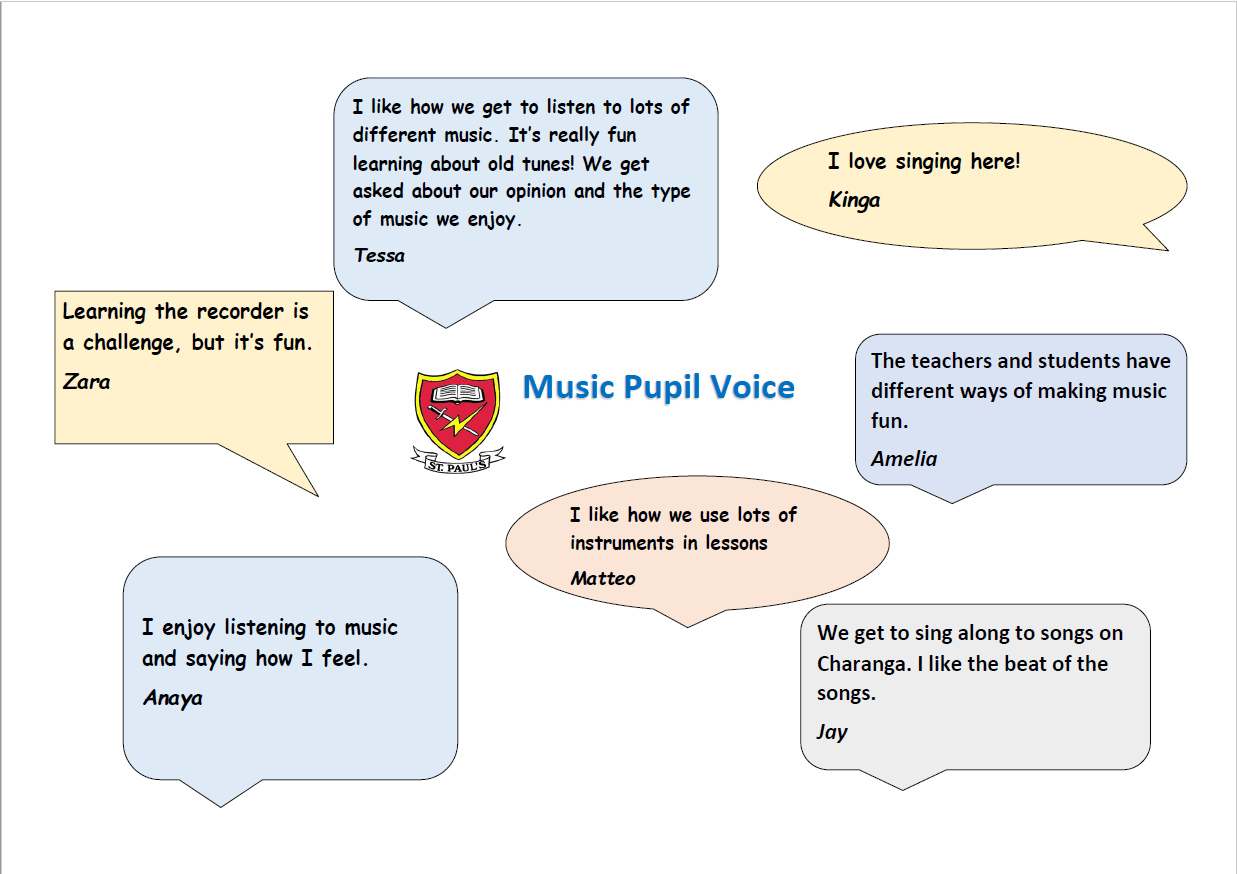Music
Intent for the curriculum in music, and our understanding of its implementation and impact.
As with all other subjects at St Paul’s, we want pupils to develop the characteristics of learners outlined in DESIRE. Music is one of the highest forms of creativity and one which we at St Paul’s aim to foster a love of and appreciation for. Through music, we want children to have opportunities to develop not only their appreciation for the subject but also to build their self-confidence, their pupil ‘voice’ and celebrate their achievements.
Intent
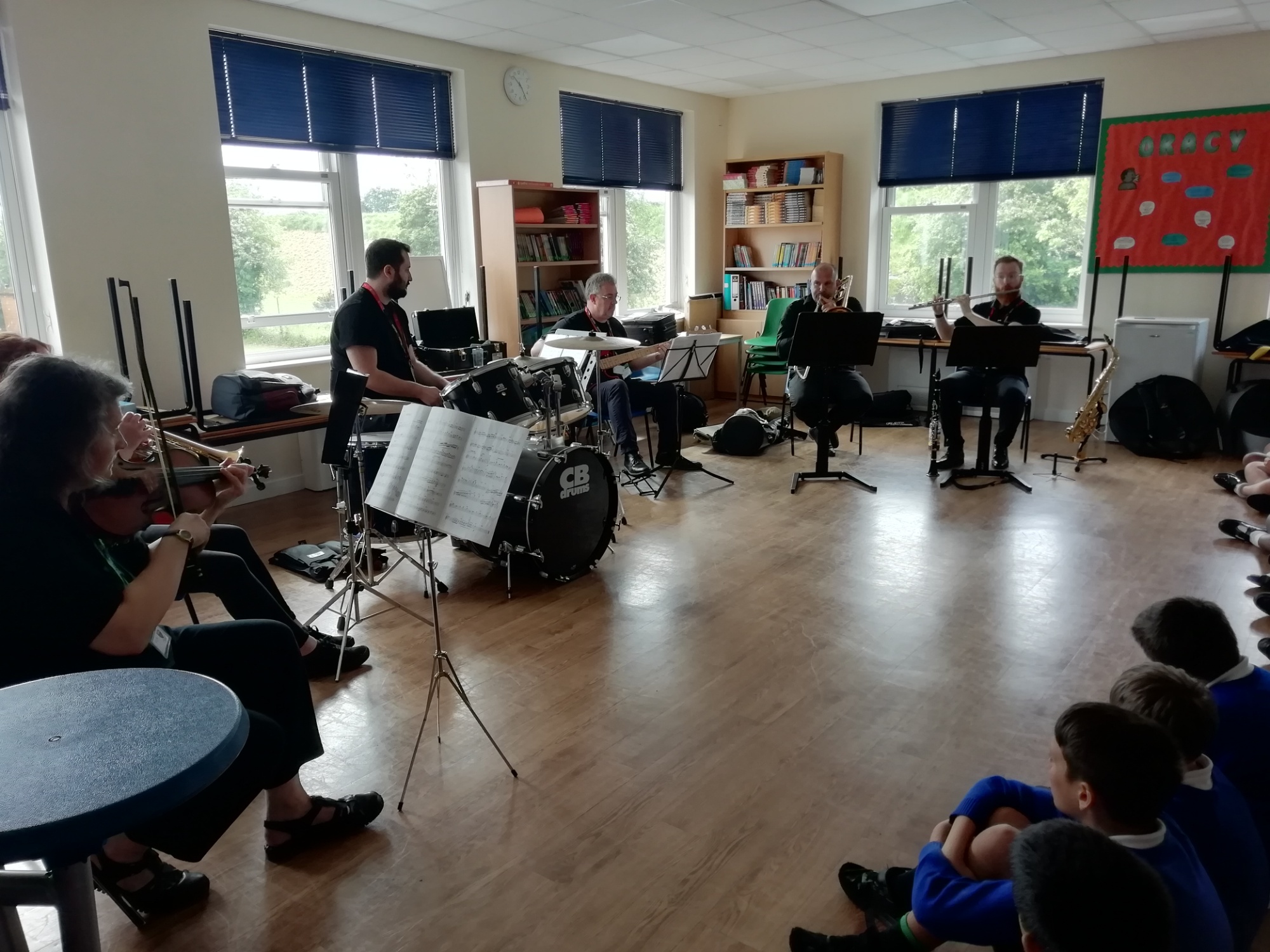 Our intent is that all children will develop their musical talents and passion through lessons, ensembles, gatherings and performances that enable them to understand and remember knowledge and skills. We aim to develop their curiosity and respect for all types of music, in a range of contexts that helps them understand the value of music in the school and wider communities.
Our intent is that all children will develop their musical talents and passion through lessons, ensembles, gatherings and performances that enable them to understand and remember knowledge and skills. We aim to develop their curiosity and respect for all types of music, in a range of contexts that helps them understand the value of music in the school and wider communities.
Music-making overall is enjoyable and as the children progress through the sequence of learning, they develop their sense of rhythm and confidence in singing, considering the structure and organisation of music. Technical vocabulary is encouraged when discussing music to deepen their knowledge and performance skills are regularly fostered to encourage confidence, self-awareness and build cultural capital.
We believe that music offers pupils opportunities to:
- Listen to and critically analyse music across a range of genres, historical periods and traditions, including works by the great composers, musicians and pieces performed by themselves and others in school.
- Sing for a wide range of purposes, to compose music, to learn a musical instrument and use technology to record and access music.
- Understand ways in which music is created and communicated, including through the inter-related dimensions: pitch, duration, dynamics, tempo, timbre, texture, structure and musical notation.
Catholic Social Teaching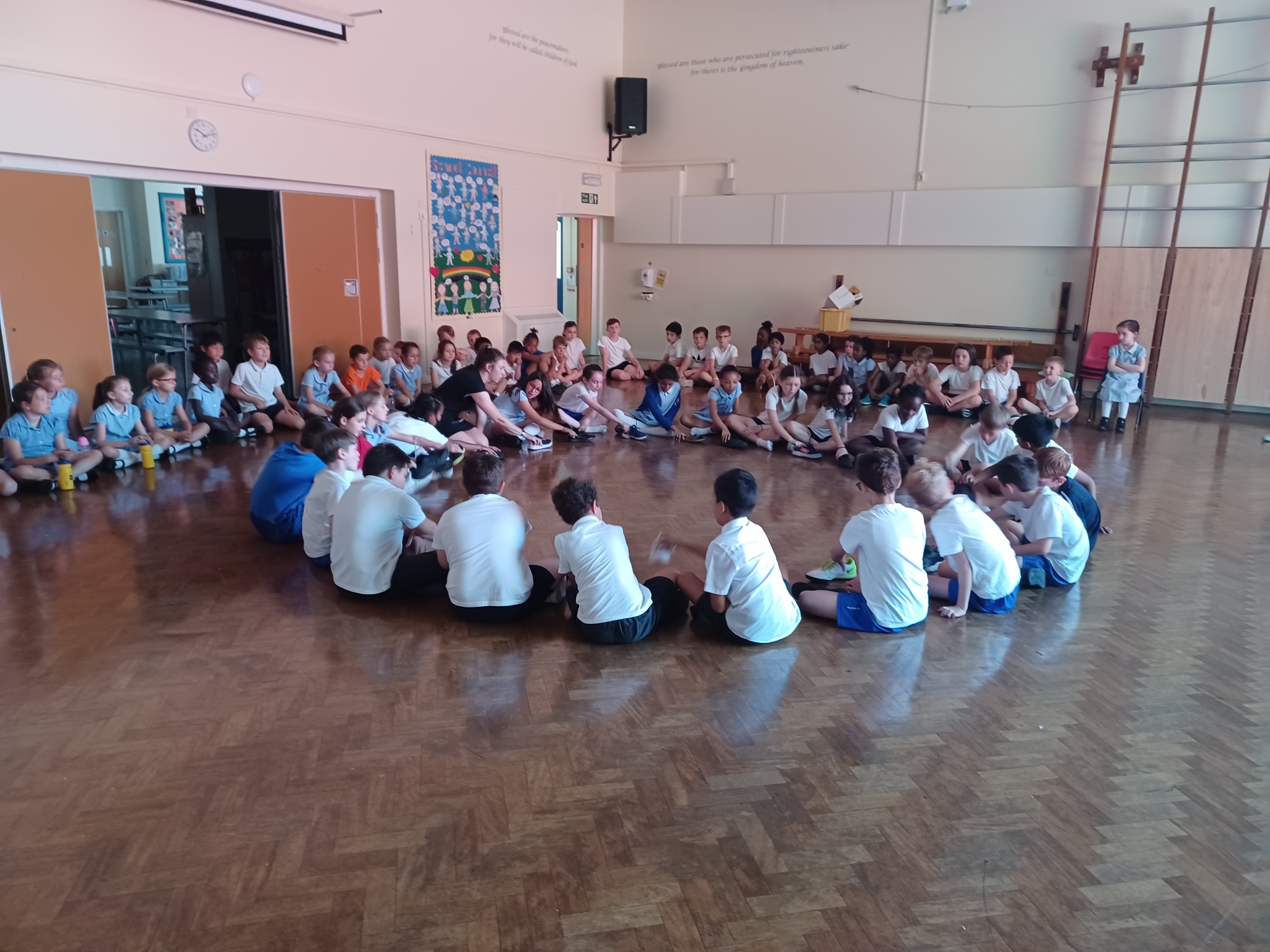
The curriculum for music consistently exposes children to connections to a wide range of backgrounds, abilities, beliefs and cultures. This enables children to understand, appreciate and respect differences in the world and its people, including the things we share in common across cultural, religious, ethnic and socioeconomic communities.
Oracy
Pupils will apply and enhance their developing oracy skills in all Music units, which require cooperation and discussion throughout. Through music lessons, children engage with views, beliefs and opinions that are different from their own in considered ways. We encourage children to take ownership of their performances and to think critically about their own and others’ music-making.
SEND intent
We aim to make our curriculum accessible to all and music is an area of the curriculum where SEND children can shine. We use a practical approach to introduce and teach the content of music lessons which involve singing and playing instruments as well as appraising music we listen to and composing our own. Information technology is used to immerse learners and concrete experiences have a high priority in helping all children, including those with SEND, access the curriculum.
Implementation
Opportunities to develop knowledge and skills in music are offered in a variety of contexts, including: weekly lessons that are based upon the Charanga scheme of work, which ensures a wide exposure to different genres of music, with lots of practical opportunities to explore the inter-related dimensions of music through listening and composing; singing assemblies which focus around the Catholic ethos of school, performance assemblies to showcase learning across the whole school and build appreciation and connections in our 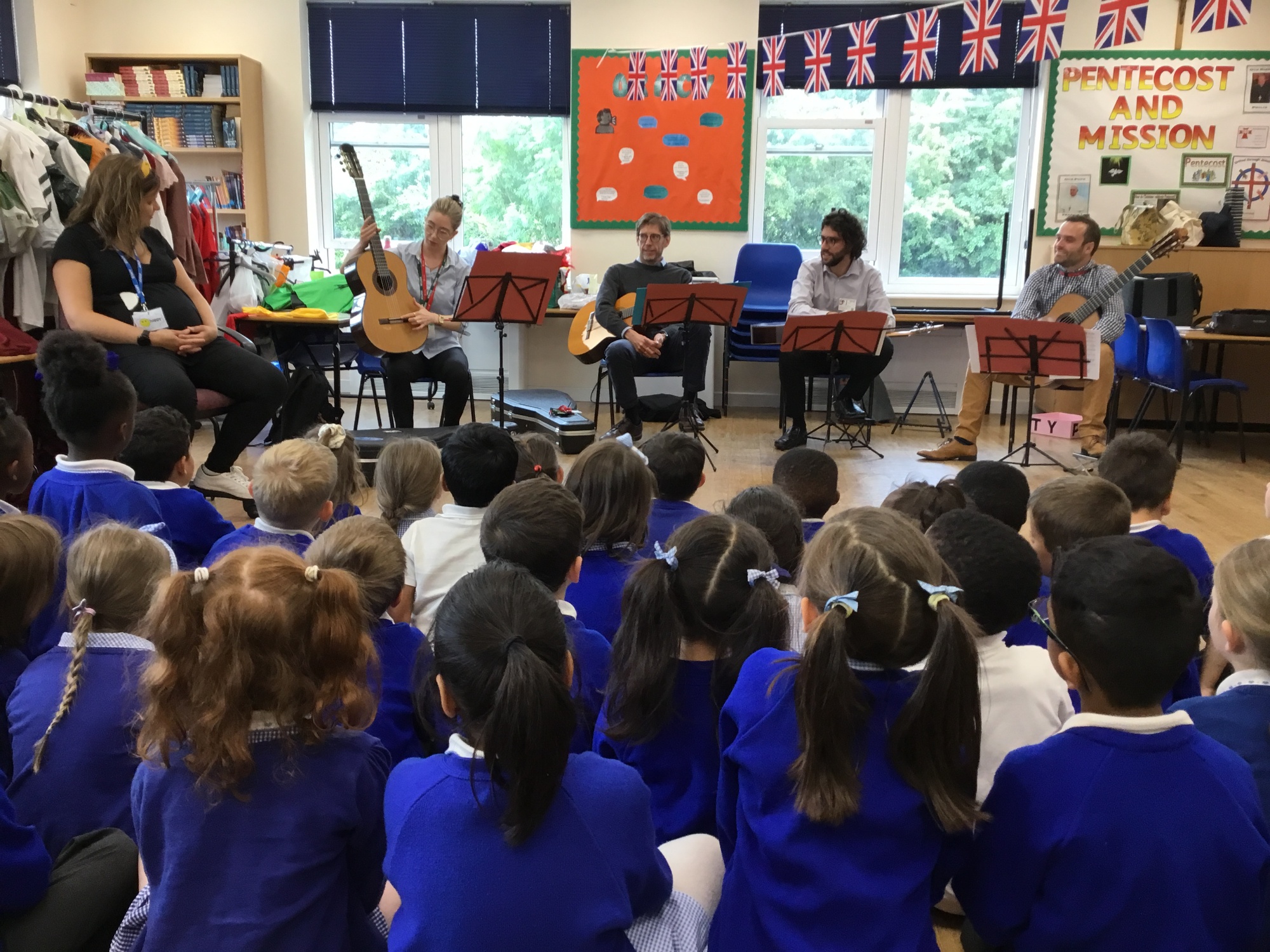
We know that good subject knowledge is essential in enabling pupils to discover their musical potential and build skills over time. We are confident that this is strong throughout the school. Within each unit of learning, students revisit existing knowledge and skills and then build upon a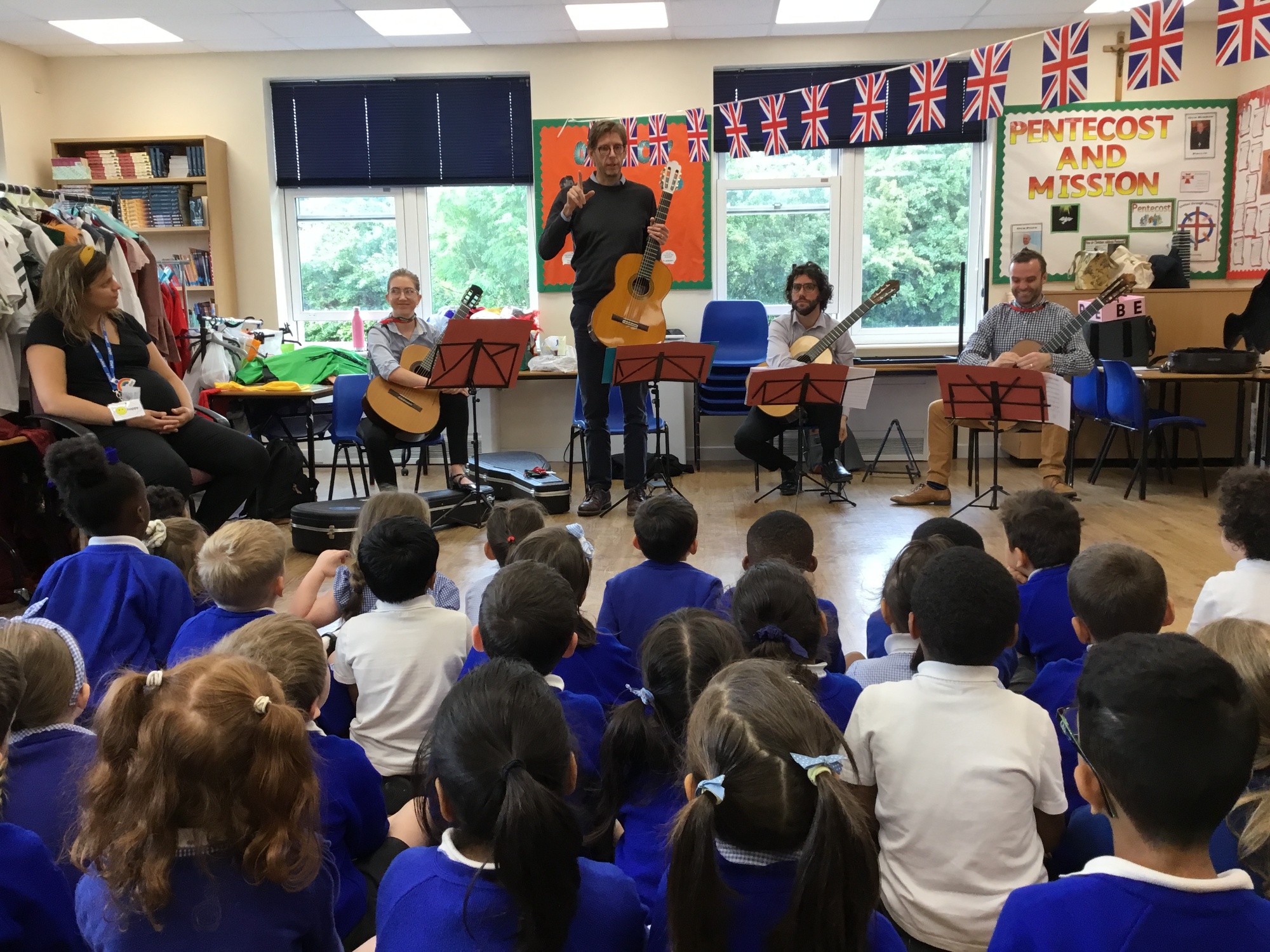
Formative assessment takes place every lesson and planning is flexible so that gaps can be addressed to enable children to keep up with their peers wherever possible or be moved on to extend skills. Teachers use discussion and effective questioning within lessons, as well as end of topic performances to identify learning outcomes. Children are actively encouraged to assess and critique their own work and others’ work each to explore improvements/ changes that could be made to move their learning and competence to the next level.
Impact
Through implementing the learning opportunities above, children will progressively build on their knowledge and skills in music, making connections across a wide range of repertoire and apply subject specific vocabulary. They will compose, perform and evaluate music individually and with others, using it as a form of expression and overall, develop a love and respect for the power of music.

